Future-Proof Your Finance Department

HOW TO DOCUMENT YOUR ACCOUNTING PROCESSES
EVERY LEADER HOPES THEIR BUSINESS WILL RUN LIKE A WELL-OILED MACHINE.
It’s a well-worn cliché for a reason. But what if the machine of your organization is made of separate parts that all operate separately?
What if, even though every part of your machine is functioning exactly as everyone “knows” it should, that knowledge is obscured within the organization? what if that knowledge may even be fundamentally flawed?
For many companies, that’s reality. It’s called tribal knowledge, and it can be a big problem – especially for accounting departments – if you don’t know how to spot it, capture it and correct it.
Tribal Knowledge, Defined:
“Tribal knowledge is any unwritten information that is not commonly known by others within a company. This term is used most when referencing information that may need to be known by others in order to produce quality a product or service. The information may be key to quality performance, but it may also be totally incorrect.” – Six Sigma Lean Methodology
Leaders can identify problem processes by asking themselves a few key questions:
Does the process rely on the individual or team to know that “that’s just how it’s done” and lacks a universal system to document the accounting process?
Do others need access to or rely on the process being performed to maintain work quality and output?
Before you can document them, is the rationale behind the specifics of how the accounting processes are performed difficult to identify – or even crumble under scrutiny?
If you’re able to answer these questions in the affirmative, there’s good news: The battle to identify and capture tribal knowledge in your company is half-won already.
Scale Without Fail: What SMBs Need to Know & Why Industrial Knowledge Affects SMBs Most

It can be surprising to learn that its small-to-mid-sized businesses (SMBs) are the most likely to have issues with tribal knowledge. The same qualities that are required for helming an SMB tend to leave scrappy start-ups and growing family empires vulnerable to the gatekeeping, bottlenecking and murky accounting processes.
The willingness to wear many hats; the resourcefulness and the need to “make it work, no matter what”, are crucial at first. By necessity, SMBs build upon a foundation that favors the ability to learn as you go.
What happens if someone indispensable retires or moves on to new opportunities? If the documentation of the knowledge they’re bringing with them doesn’t exist, where will that leave the person or team of people that need to replace them?
In a rapid-scale model, costly interruptions are more likely to be caused by the need for this knowledge to be transferred quickly and accurately by as few as one “expert” to an incoming class of entry-level talent. Can that really happen if the only record of the processes your new recruits need to master – as soon as possible! – exist solely inside the mind of a single person? Institutional Knowledge.
The finance and accounting departments of companies are notorious epicenters of tribal knowledge. Everything from spreadsheet naming conventions to the shared folder that holds the data bookkeepers use at monthly close is too often known only to a select few.
If it’s impossible to complete something as simple as a three-way match simply because the only accounts payable specialist that knows how to populate invoice numbers into the corresponding spreadsheet has a dentist appointment, that’s a very big problem.
Imagine if those same accounts payable specialist were to give their two-week notice tomorrow, or – as so many qualified accounting professionals are poised to do – retire from the workforce for good?
Generations exist in the workforce in more than one sense of the word: few people stay in the same job for more than five years, and even fewer accountants have a tenure that long at a single company. When you combine the typical turnover in workplace “micro-generations” with the looming wave of Baby Boomers heading into retirement, it’s clear to see why capturing tribal knowledge before it disappears for good is more urgent than ever.
There’s a gap in how leadership and their teams perceive the success of internal knowledge management objectives.
Future-Proof F&A: How to Document Accounting Processes

Finance leaders have a key role in knowing how to document their accounting processes correctly. Documenting your accounting process isn’t just a nice best practice. Given everything we know about the way tribal knowledge works and how it slows or even paralyzes growth makes universal, accessible documentation absolutely critical.
Finance leaders have a key role in the process, especially when tribal knowledge around accounting processes functions as the actual foundation those processes are built upon. It requires a change not just in the mechanics of the work your team will do – moving away from it means driving a substantive change in company culture.
Find out who the “indispensable” workers are. Whether it’s the general ledger accountant who has been with the company from day one, or that one employee that everyone calls when they encounter a glitch, they’ll be your most valuable asset for the rest of the process
People rarely gatekeep knowledge out of malice. Subject matter experts are invaluable, so ask them to function as a consultant as you work to capture what they know.
Here’s your biggest action item in your knowledge capture strategy – documentation. Work with your SME to determine why a process is performed the way it is. If it can be improved, you’ll discover that during this step. Then, crucially, write it all down.
How Virtual Accounting Support Helps to Document Accounting Processes
Tribal knowledge capture and accounting process documentation can be done easily, effectively and seamlessly when you bring a qualified third party in to help with what can otherwise be a daunting and time-consuming task.
Finance and accounting outsourcing doesn’t just improve efficiency while providing an opportunity to reinvest money into your organization – with the right partner, knowledge capture and a system that lets you document your accounting process, including universal documentation, are baked directly into the relationship.
At Personiv, we understand how crucial process improvement can be to creating a more efficient finance department. It’s why you’ll find Six-sigma yellow belts leading teams of skilled accounting professionals here in Manila – and even here at home. We apply our “everything can be improved” mindset to each and every accounting team we build for our clients, whether that team is made up of a single accountant, or 50.
We can help you capture tribal knowledge, thus suppressing any trouble it could cause to your organization. We can also help your organization document its accounting process, this, coupled with tribal knowledge that is well-captured can turn a major threat into an opportunity.
Get the complete eBook.
WITH PERSONIV PERFORMING YOUR BUSINESS PROCESSES
YOU CAN ENJOY IMMEDIATE RESULTS PREPARED ON-DEMAND AT A PRICE POINT THAT TRADITIONAL OUTSOURCING CANNOT MATCH.




